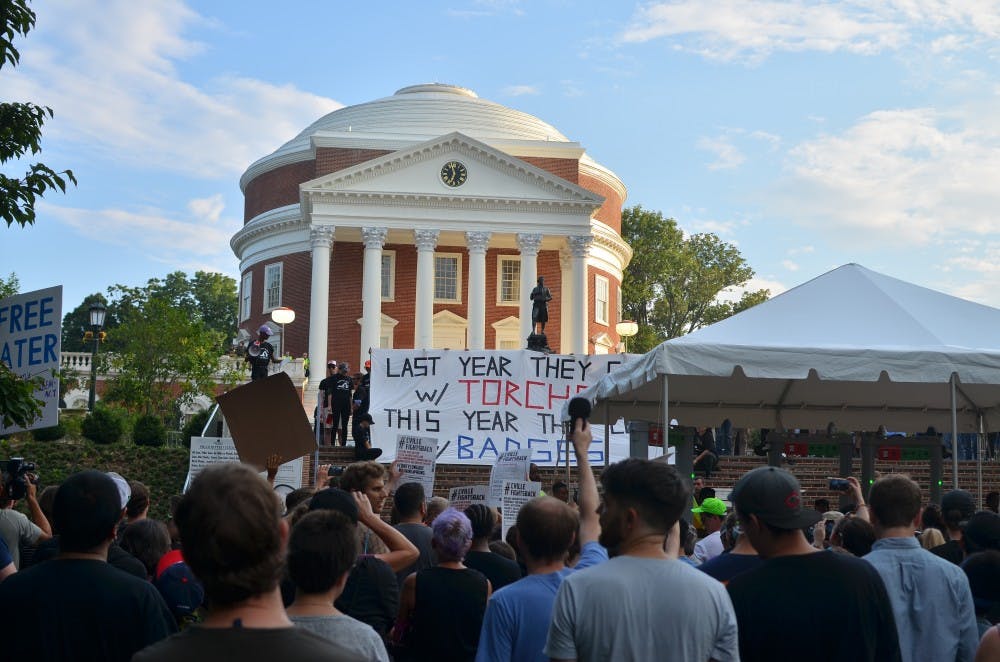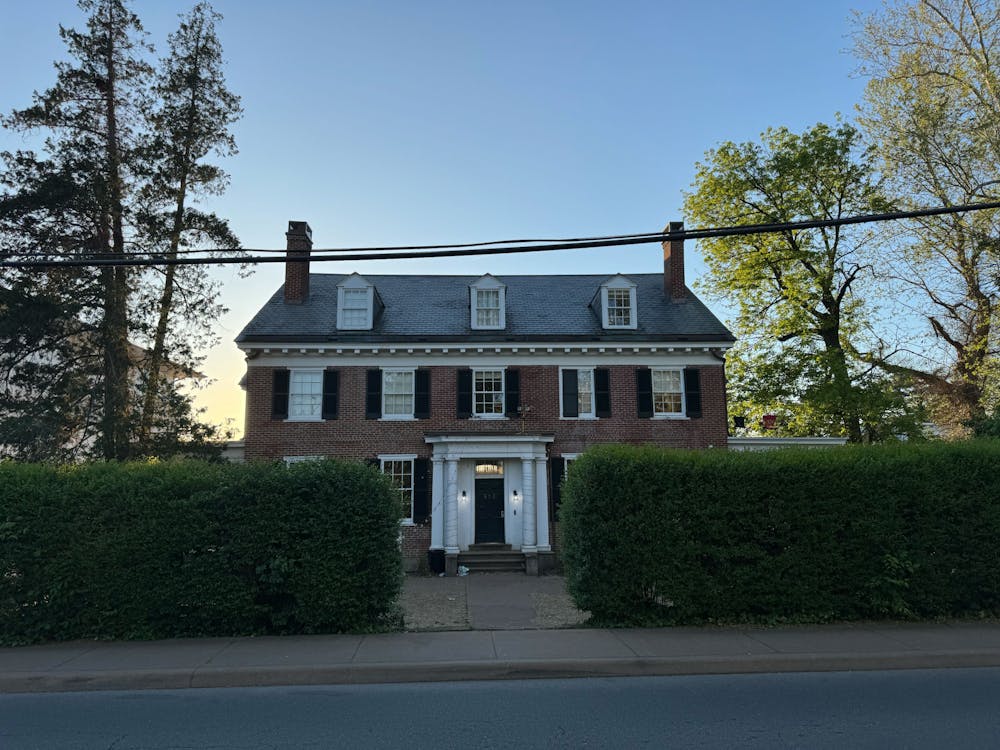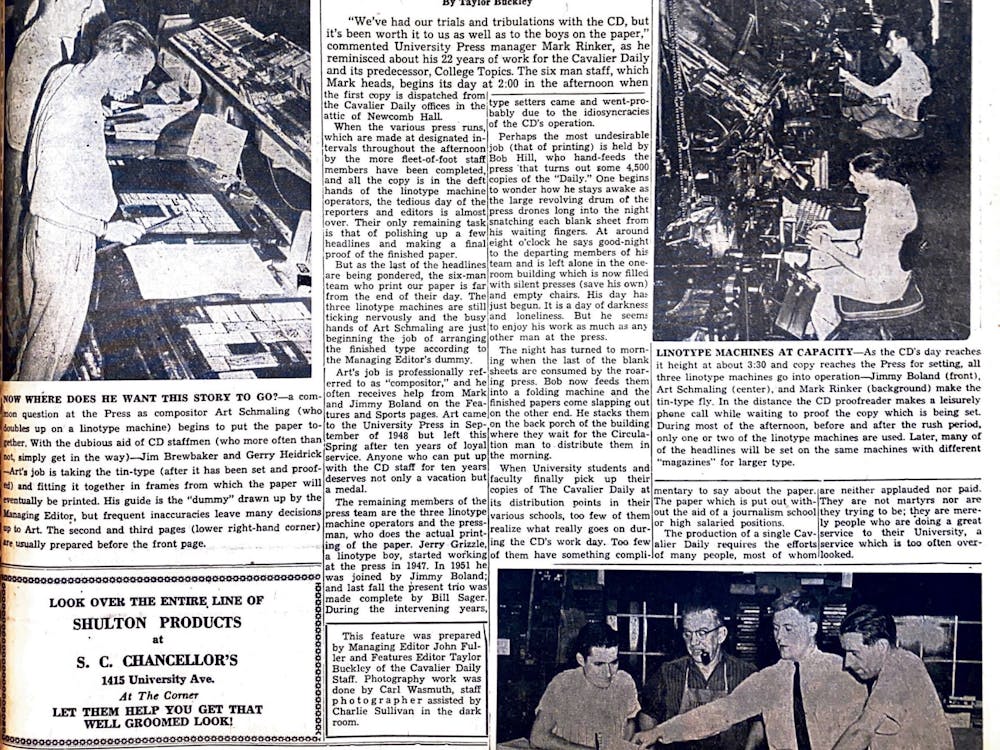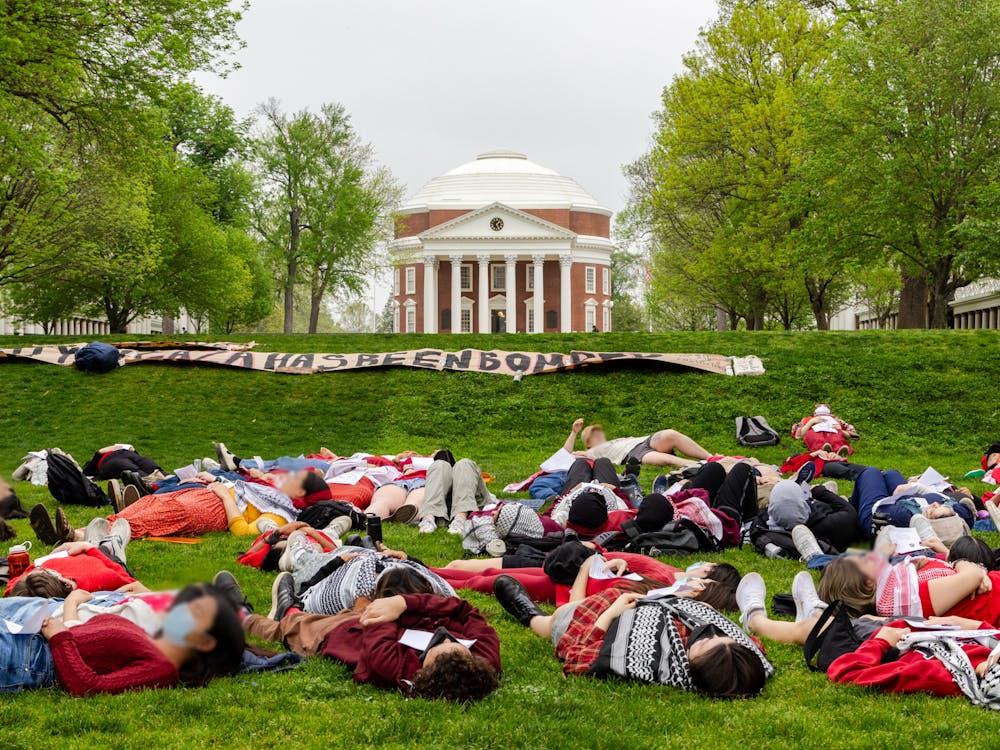U.Va. Students United hosted its first “Disorientation” event for the year last Tuesday evening in Maury Hall, titled “The Propaganda Machine,” bringing in roughly 80 students, faculty and Charlottesville residents to Maury Hall to describe a brief history of activism at the University. The event featured A.D. Carson, assistant professor of Hip-Hop and the Global South, as a guest speaker to discuss his experience facing institutional racism in higher education.
During the event, Carson talked about a lack of institutional support for students to address issues of racism and discrimination not just at the University but also his alma mater, Clemson University. Using his doctorate dissertation of rap songs and poems, Carson told the story of how his own experiences have allowed him to see the parallels of a school’s administration not listening to students or ensuring the safety of its community.
Carson earned his doctorate in rhetorics, communication and information design from Clemson in 2017. Carson became an assistant professor in the McIntire Department of Music last summer — just months before the violent Unite the Right rally took place.
Carson talked about the origin of his rap album, beginning when he arrived to the Clemson campus July 2013. He said the time period of his arrival and situations of discrimination and racism drove him to document his experiences.
“One thing that I tried to be mindful of when I was at Clemson was that as all of these things were happening I was trying to document it,” Carson said. “Because weird things were going on.”
Before Carson spoke, presenters gave a timeline of events that preceded and followed last summer's violent white supremacist rallies in Charlottesville.
The timeline included votes by City Council to remove statues of Confederate Gens. Robert E. Lee and Thomas “Stonewall” Jackson from downtown parks, a town hall meeting with Rep. Tom Garrett (R) in March 2017 at the Batten School and the return of Richard Spencer, a University alumnus and well-known white supremacist, to Charlottesville last October. It also noted the “March for Community Defense” and the Klu Klux Klan rally in downtown Charlottesville in July of last year.
Carson discussed his dissertation to walk the attendees of the event through his experiences at Clemson and the dark past of racist history intertwined on the campus today. Some situations he cited included racist emails, discriminatory and racist social events, and a lack of administrative response to student demands.
One event Carson discussed in-depth was a visit to the home of the slaveholding former U.S. Vice President John C. Calhoun, whose plantation rests under Clemson’s campus.
Carson said this trip, the town’s allegiance to Clemson football team and his experiences with racism helped to foster one of his groundbreaking poems, “See the Stripes,” a call-to-action to faculty and students to acknowledge institutional racism.
“I tried to take my time in writing that poem so that I didn’t misrepresent the information that I felt was really important to put together,” Carson said.
Carson went on further to talk about the aftermath of publishing his poem online and starting the campaign, See the Stripes. Carson said what followed, including examples of “klan recruitment,” racist language and derogatory actions with no response from the school is something that is common within universities.
“Others things that followed after the poem went online after the campaign started were the kinds of things you see at universities all over,” Carson said.
Laura Sirgany, a graduate student in the Curry School and class of 2004 alumnus, said the connections between Clemson and the University she drew from Carson’s dissertation opened her eyes to the parallels between the schools and the history they entail.
“I think it is dark and revelatory — the connections between the two schools — and there’s a lot of eerie parallels,” Sirgany said. “I would love to see more of A.D. Carson’s work and hear more of his input on what’s being done at the University in terms of recognizing activism and creating a constructive dialogue.”





